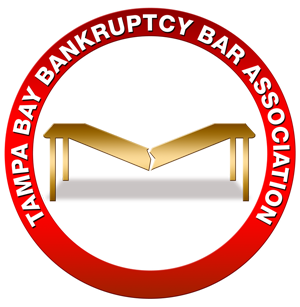by Adam Gilbert, Underwood Murray PC
One of the benefits of practicing in the United States Bankruptcy Court for the Middle District of Florida (the “District”) is the use of conditional approval of disclosure statements in Chapter 11 cases. Conditional approval often allows for expedited consideration of the debtor’s plan of reorganization, saving debtors the added expense of a separate hearing to consider approval of the disclosure statement. Generally, the Court will enter its form Order Conditionally Approving Disclosure Statement, Fixing Time to File Objections to the Disclosure Statement, Fixing Time to File Applications for Administrative Expenses, Setting Hearing on Confirmation of the Plan, and Setting Deadlines with Respect to Confirmation Hearing (“Order Setting Confirmation Hearing”), and instruct the plan proponent to serve the Order Setting Confirmation Hearing, which contains the notice of the hearing to consider confirmation of the plan of reorganization. However, for those plans enjoining conduct that would not otherwise be barred under the bankruptcy code, savvy practitioners should consider taking additional steps to ensure compliance with the requirements of Federal Rule of Bankruptcy Procedure 2002(c)(3).
The case of Le Centre on Fourth LLC,1 should serve as a cautionary tale and as a reminder to double check the service requirements for serving the notice of hearing to consider confirmation of a plan of reorganization. In Le Centre on Fourth LLC, the Debtor confirmed a plan of reorganization which contained a third-party injunction, i.e., enjoining conduct that would not otherwise have been enjoined under the bankruptcy code. The plan proponent served the plan, and notice of hearing for the hearing to consider confirmation, but did not specifically include the language required by Fed. R. Bankr. P. 2002(c)(3) in the notice of hearing. Well after the plan was confirmed, a party in interest petitioned the bankruptcy court to clarify that the third-party injunction contained in the confirmed plan did not apply to the party in interest because, inter alia, the plan proponent failed to comply with Federal Rule of Bankruptcy Procedure 2002(c)(3). The bankruptcy court found that the plan proponent had given sufficient notice to comply with due process requirements, and was affirmed by the district court. This decision is currently on appeal before the Eleventh Circuit Court of Appeals.
Given the District’s practice of entering its form Order Setting Confirmation Hearing, practitioners must remain vigilant to ensure compliance with Fed. R. Bankr. P. 2002(c)(3) and avoid the issue which arose in Le Centre of Fourth LLC. An example of a way practitioners can seek to minimize the likelihood of protracted litigation includes adding a separate notice containing the requirements of Fed. R. Bankr. P. 2002(c)(3) to their service package containing the Order Setting Confirmation Hearing whenever their plan seeks to enjoying the conduct contained in Fed. R. Bankr. P. 2002(c)(3). While not technically compliant with the precise language of Federal R. of Bankr. P. 2002(c)(3), such an approach may at least present the foundation for colorable compliance, and hopefully reduce likelihood that any technical issues related to notice will arise post confirmation.
